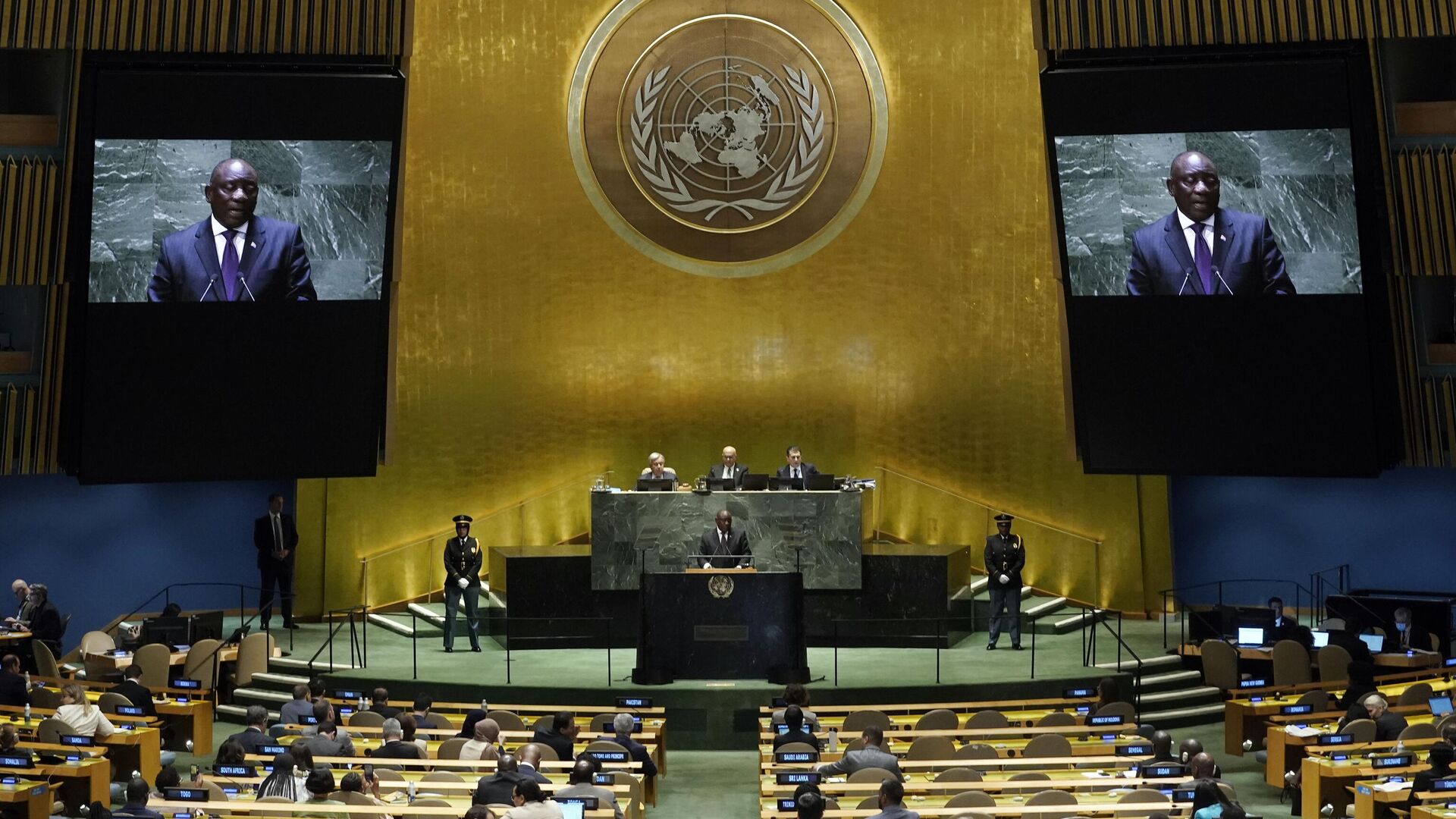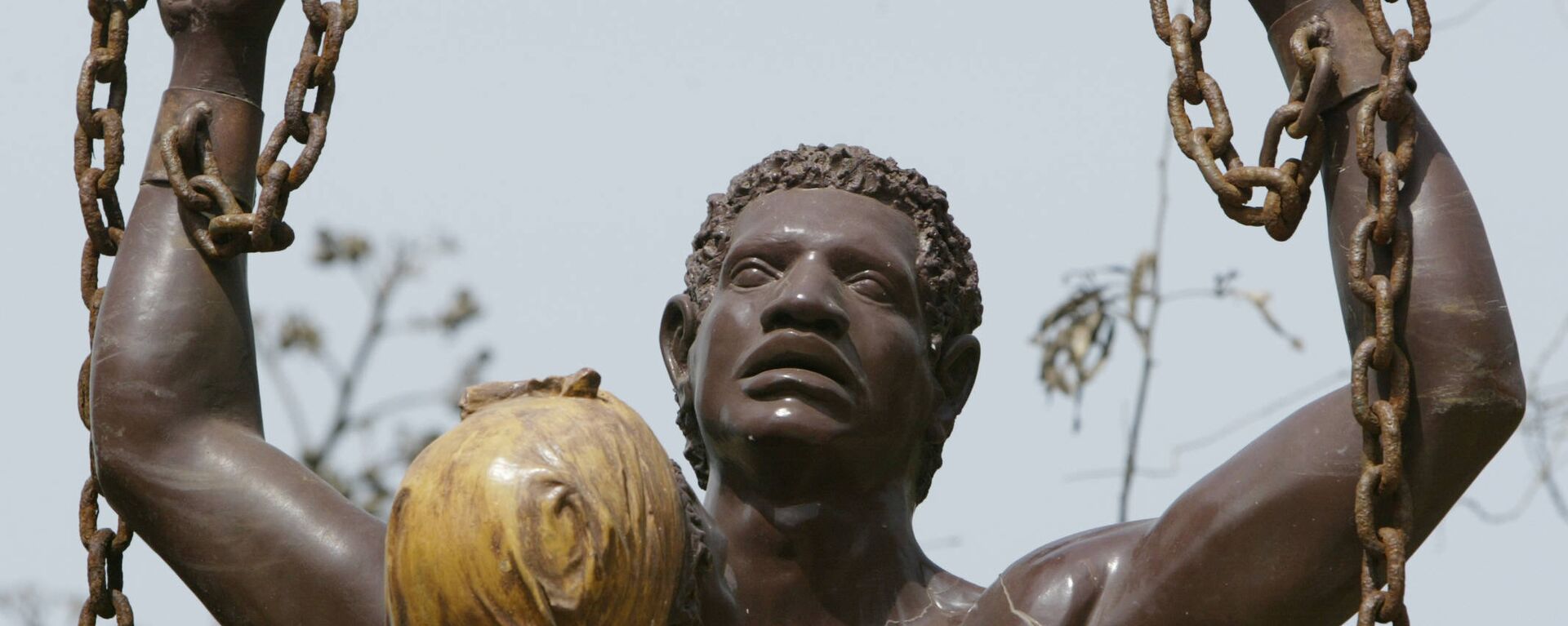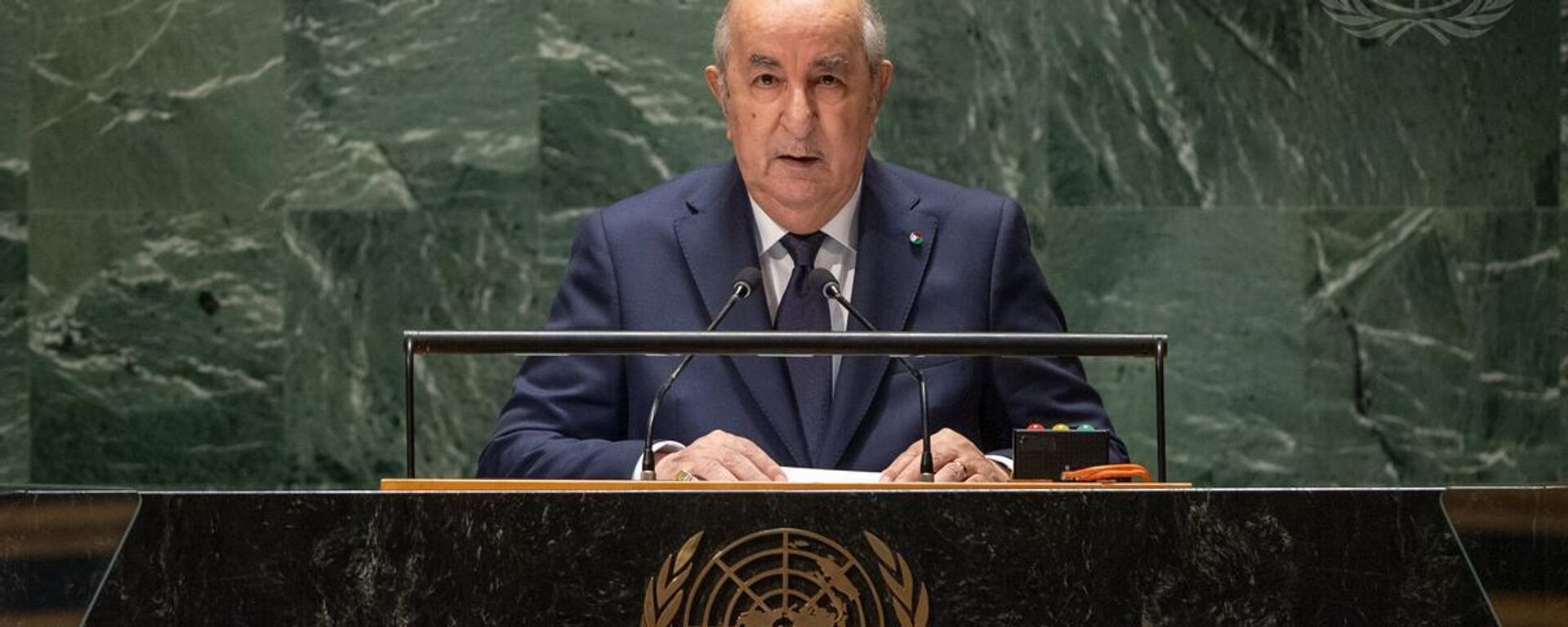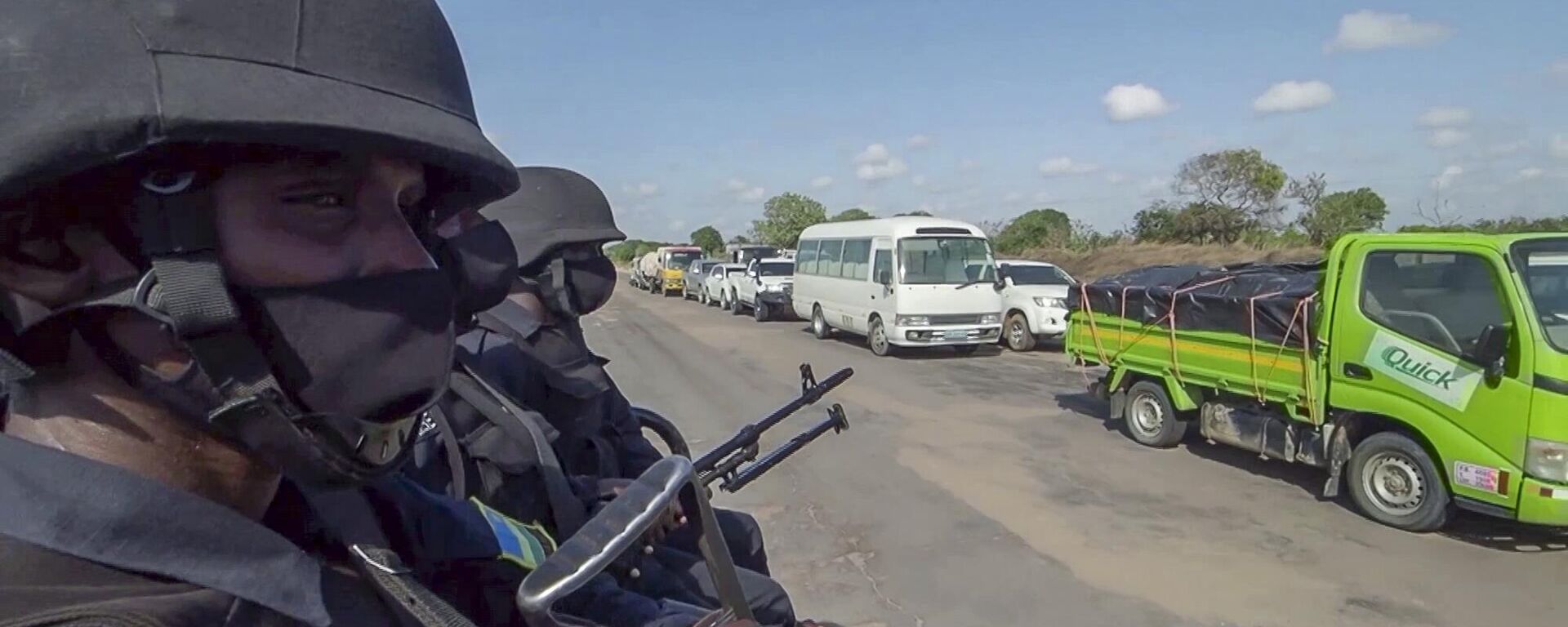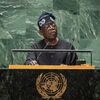https://en.sputniknews.africa/20230920/the-era-of-african-development-has-arrived-what-african-leaders-said-at-un-general-assembly-1062234859.html
'Era of Africa's Development Has Arrived': Continent's Leaders Address UN General Assembly
'Era of Africa's Development Has Arrived': Continent's Leaders Address UN General Assembly
Sputnik Africa
The annual session of the UN General Assembly will be running from September 19-22, bringing together nearly 150 world leaders to deliberate on global issues. 20.09.2023, Sputnik Africa
2023-09-20T15:30+0200
2023-09-20T15:30+0200
2023-09-20T17:25+0200
united nations (un)
features
south africa
southern africa
cyril ramaphosa
bola tinubu
abdelmadjid tebboune
algeria
mozambique
african union (au)
https://cdn1.img.sputniknews.africa/img/07e7/09/14/1062240520_0:160:3072:1888_1920x0_80_0_0_f49969932e6adb9f00e3898c702b9e49.jpg
The opening of the UN General Assembly's 78th session on Tuesday gave a number of African leaders the opportunity to speak out on global issues from the continent's perspective, as well as present their stance on multifaceted aspects of international relations and African foreign policy approaches to them.The theme of the 2023 session focuses on the implementation of the 2030 Agenda and its Sustainable Development Goals, responding to the threats of climate change and coordinating cooperation on health issues, which, among other things, was addressed by Africa's heads of state in their statements. In addition, the speakers voiced the need for commitment to multipolarity, countering terrorism and a greater role for Africa on the world stage.1. Cyril Ramaphosa, South AfricaSouth African President Cyril Ramaphosa was the first African leader to take the floor. He began his speech by saying that all human efforts today should be directed towards the realization of the 2030 Agenda. The president noted that despite the fact that the world's attention was diverted from the realization of the agenda by "the scourge of war," these divisions and troubles, "can and must be overcome."The South African leader also commented on climate change, noting that "of the 20 climate hotspots in the world, 17 are in Africa." In this vein, Ramaphosa called on world leaders to accelerate global decarbonization "while pursuing equality and shared prosperity."Ramaphosa also pointed to the need for reform of the UN Security Council to enable the body to respond to current geopolitical realities and to "ensure that the voice of the African continent and the global South is strengthened in the United Nations and broader multilateral system."The leader explained that Africa is the cradle of civilization and the continent is now set to regain its status as one of the hubs of world progress.The president also called on the world community to lift the current sanctions against Cuba and Zimbabwe, since they harm ordinary people in those countries.2. Abdelmadjid Tebboune, AlgeriaAlgerian President Abdelmadjid Tebboune spoke in a similar vein about the need to build a new world based on equality.He emphasized the "historical injustice" inflicted on Africa and the importance of addressing it by giving the continent representation on the UN Security Council.Referring to regional conflicts, Tebboune highlighted Algeria's position on the crisis in neighboring Niger, supporting the restoration of the constitutional order, a peaceful political settlement and rejecting foreign military intervention.Likewise, the Algerian leader also urged the conflicting parties in Sudan to enter into dialogue, negotiate, and hammer out a prompt cessation of hostilities. He pointed out that Algeria would continue its mediation role to resolve conflicts and would join the Security Council, holding on to the aspirations of the Arab world and the African continent.The leader also reiterated Algeria's support for the Arab Peace Initiative, which advocates the establishment of an independent Palestinian State within the 1967 borders, and described Israel's occupation of Palestinian territories as a key factor of instability in the Middle East.3. Filipe Nyusi, MozambiquePresident Filipe Nyusi of Mozambique addressed issues such as security, counter-terrorism, climate change and environmental conservation in his speech.The leader cited his country's experience in fighting terrorism, specifically in Mozambique's Cabo Delgado Province in the north, pointing to the government's jointly with the Rwandan contingent and SADC "achieving tangible success on the ground."The president also spoke out on climate change, explaining that its cause lies in the lack of solidarity, trust and the "selfishness of some countries."He added that natural disasters have occurred as a consequence, citing the example of cyclones Idai, Kenneth and Freddy that hit Mozambique, a third of the damage from which the country has not yet been able to recover.4. Bola Tinubu, NigeriaNigerian President Bola Tinubu focused his speech on the vision of the African continent in international relations and the threats it confronts. In discussing the challenges facing the region, Tinubu mentioned the threat of radical Islamist incursions from the northern Africa.Other challenges plaguing the region are illegal resource extraction, which can "threaten peace and place national security at grave risk" as well as climate change, which brings deserts, flooding and erosion to Nigeria. To combat the problem, Tinubu believes the help of foreign countries is needed.Touching on Africa's changing role in the world, Tinubu said it is time for the continent to free itself from having its resources plundered and the will of African peoples must be respected by the international community.5. Macky Sall, SenegalSenegalese President Macky Sall, who was the last African leader to speak, drew the Assembly's attention to the fact that the multilateral system, which is a legacy of a "bygone era," is already obsolete.In this vein, the West African nation's leader advocated for greater representation from multilateral institutions, praising the political will of the G20 who accepted the African Union into the organization.Sall also spoke about the cultural differences of the African continent, saying it is unacceptable to impose the same standards on everyone today.On Wednesday, Day Two of the General Assembly debates is underway, where the presidents of Seychelles, Rwanda, Namibia, Ghana and Angola will speak among African leaders.
https://en.sputniknews.africa/20230920/world-powers-should-pay-reparations-for-colonialism-enslavement-of-africans-un-reports-says-1062237493.html
https://en.sputniknews.africa/20230920/algerian-president-warns-against-foreign-military-intervention-in-niger-1062233256.html
https://en.sputniknews.africa/20230909/mozambique-sadc-force-reports-significant-setback-in-terrorist-activities-1061983935.html
south africa
southern africa
algeria
mozambique
east africa
north africa
nigeria
west africa
senegal
Sputnik Africa
feedback@sputniknews.com
+74956456601
MIA „Rossiya Segodnya“
2023
Maxim Grishenkin
https://cdn1.img.sputniknews.africa/img/07e7/0a/17/1063018107_0:0:1104:1103_100x100_80_0_0_03090c85a11f5d2e8a19cf1d989443c9.jpg
Maxim Grishenkin
https://cdn1.img.sputniknews.africa/img/07e7/0a/17/1063018107_0:0:1104:1103_100x100_80_0_0_03090c85a11f5d2e8a19cf1d989443c9.jpg
News
en_EN
Sputnik Africa
feedback@sputniknews.com
+74956456601
MIA „Rossiya Segodnya“
Sputnik Africa
feedback@sputniknews.com
+74956456601
MIA „Rossiya Segodnya“
Maxim Grishenkin
https://cdn1.img.sputniknews.africa/img/07e7/0a/17/1063018107_0:0:1104:1103_100x100_80_0_0_03090c85a11f5d2e8a19cf1d989443c9.jpg
united nations (un), south africa, southern africa, cyril ramaphosa, bola tinubu, abdelmadjid tebboune, algeria, mozambique, african union (au), east africa, north africa, nigeria, west africa, senegal
united nations (un), south africa, southern africa, cyril ramaphosa, bola tinubu, abdelmadjid tebboune, algeria, mozambique, african union (au), east africa, north africa, nigeria, west africa, senegal
'Era of Africa's Development Has Arrived': Continent's Leaders Address UN General Assembly
15:30 20.09.2023 (Updated: 17:25 20.09.2023) The annual session of the UN General Assembly will be running from September 19-22, bringing together nearly 150 world leaders to deliberate on global issues.
The opening of the UN General Assembly's 78th session on Tuesday gave a number of African leaders the opportunity to speak out on global issues from the continent's perspective, as well as present their stance on multifaceted aspects of international relations and African foreign policy approaches to them.
The theme of the 2023 session focuses on the implementation of the 2030 Agenda and its Sustainable Development Goals, responding to the threats of climate change and coordinating cooperation on health issues, which, among other things, was addressed by Africa's heads of state in their statements.
In addition, the speakers voiced the need for commitment to multipolarity, countering terrorism and a greater role for Africa on the world stage.
1. Cyril Ramaphosa, South Africa
South African President Cyril Ramaphosa was the first African leader to take the floor. He began his speech by saying that all human efforts today should be directed towards the realization of the 2030 Agenda.
The president noted that despite the fact that the world's attention was diverted from the realization of the agenda by "the scourge of war," these divisions and troubles, "can and must be overcome."
"From the experience of our own journey from apartheid to democracy, we value the importance of engaging all parties to conflicts to achieve peaceful, just and enduring resolutions. It is these principles that inform South Africa’s participation in the African Peace Initiative, which seeks a peaceful resolution of the conflict between Russia and Ukraine," Ramaphosa explained.
The South African leader also commented on climate change, noting that "of the 20 climate hotspots in the world, 17 are in Africa." In this vein, Ramaphosa called on world leaders to accelerate global decarbonization "while pursuing equality and shared prosperity."
"Centuries after the end of the slave trade, decades after the end of the colonial exploitation of Africa’s resources, the people of our continent are once again bearing the cost of the industrialization and development of the wealthy nations of the world," the president stressed. "This is a price that the people of Africa are no longer prepared to pay."
Ramaphosa also pointed to the need for reform of the UN Security Council to enable the body to respond to current geopolitical realities and to "ensure that the voice of the African continent and the global South is strengthened in the United Nations and broader multilateral system."
The leader explained that Africa is the cradle of civilization and the continent is now set to regain its status as one of the hubs of world progress.
"Despite its history, despite the legacy of exploitation and subjugation, despite the ongoing challenge of conflict and instability, Africa is determined to regain its position as a site of human progress. The era of African development has arrived," Ramaphosa remarked.
The president also called on the world community to lift the current sanctions against Cuba and Zimbabwe, since they harm ordinary people in those countries.
2. Abdelmadjid Tebboune, Algeria
Algerian President Abdelmadjid Tebboune spoke in a similar vein about the need to build a new world based on equality.
"Reforms are also needed in the UN Security Council, which has been weak in fulfilling its duty to maintain international peace and security and in preventing the use of force," he said.
He emphasized the "historical injustice" inflicted on Africa and the importance of addressing it by giving the continent representation on the UN Security Council.
Referring to regional conflicts, Tebboune highlighted Algeria's position on the crisis in neighboring Niger, supporting the restoration of the constitutional order, a peaceful political settlement and rejecting foreign military intervention.
Likewise, the Algerian leader also urged the conflicting parties in Sudan to enter into dialogue, negotiate, and hammer out a prompt cessation of hostilities. He pointed out that Algeria
would continue its mediation role to resolve conflicts and would join the Security Council, holding on to the aspirations of the Arab world and the African continent.
The leader also reiterated Algeria's support for the Arab Peace Initiative, which advocates the establishment of an independent Palestinian State within the 1967 borders, and described Israel's occupation of Palestinian territories as a key factor of instability in the Middle East.
3. Filipe Nyusi, Mozambique
President Filipe Nyusi of Mozambique addressed issues such as security, counter-terrorism, climate change and environmental conservation in his speech.
The leader cited his country's experience in
fighting terrorism, specifically in Mozambique's Cabo Delgado Province in the north, pointing to the government's jointly with the Rwandan contingent and
SADC "achieving tangible success on the ground.""This is a pioneer experience of combining bilateral and multilateral interventions. It is also an example of solution of African problems, first by the Africans themselves," Nyusi remarked.
The president also spoke out on climate change, explaining that its cause lies in the lack of solidarity, trust and the "selfishness of some countries."
"The countries that pollute most continue with emissions that cause global warming and climate change. The enrichment of these countries is paid with a price of disgrace for countries that contribute less with pollution that coincidentally are the poorest countries," Nyusi pointed out.
He added that natural disasters have occurred as a consequence, citing the example of cyclones Idai, Kenneth and Freddy that hit Mozambique, a third of the damage from which the country has not yet been able to recover.
Nigerian President Bola Tinubu focused his speech on the vision of the African continent in international relations and the threats it confronts. In discussing the challenges facing the region, Tinubu mentioned the threat of radical Islamist incursions from the northern Africa.
"Mercenaries and extremists with their lethal weapons and vile ideologies invade our region from the north. This harmful traffic undermines the peace and stability of an entire region," the leader said, adding that "the international community must strengthen its commitment to arrest the flow of arms and violent people into West Africa" to fully corral this threat.
Other challenges
plaguing the region are illegal resource extraction, which can
"threaten peace and place national security at grave risk" as well as climate change, which brings deserts, flooding and erosion to Nigeria. To combat the problem, Tinubu believes the help of foreign countries is needed.
"Continental efforts regarding climate change will register important victories if established economies were more forthcoming with public and private sector investment for Africa’s preferred initiatives," the president outlined.
Touching on Africa's changing role in the world, Tinubu said it is time for the continent to free itself from having its resources plundered and the will of African peoples must be respected by the international community.
As for Africa, we seek to be neither appendage nor patron. We do not wish to replace old shackles with new ones. Instead, we hope to walk the rich African soil and live under the magnificent African sky free of the wrongs of the past and clear of their associated encumbrances. To the rest of the world, I say walk with us as true friends and partners. Africa is not a problem to be avoided nor is it to be pitied. Africa is nothing less than the key to the world’s future.
Bola Tinubu
Nigerian President
Senegalese President Macky Sall, who was the last African leader to speak, drew the Assembly's attention to the fact that the multilateral system, which is a legacy of a "bygone era," is already obsolete.
In this vein, the
West African nation's leader advocated for greater representation from multilateral institutions, praising the political will of the G20 who accepted the African Union into the organization.
Sall also spoke about the cultural differences of the African continent, saying it is unacceptable to impose the same standards on everyone today.
"Our position remains the same: among free peoples, with diverse histories and socio-cultural realities, there can be no legitimacy for some to define and impose a single way of life on all, like a 'civilizational ready-made garment'," Sall concluded. "What's right for some, is not necessarily right for others."
On Wednesday, Day Two of the General Assembly debates is underway, where the presidents of Seychelles, Rwanda, Namibia, Ghana and Angola will speak among African leaders.
